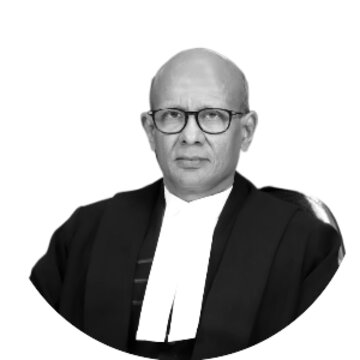Criminalisation of Triple Talaq
Samastha Kerala Jamiathul Ulema v Union of India
The Court is hearing petitions challenging the constitutionality of the Muslim Women (Protection of Rights on Marriage) Act, 2019.
Pending
Parties
Petitioner: Samastha Kerala Jamiathul Ulema; Alikutty Musliyar; Jamiat Ulama I Hind; Mustaqeem Ahsan Azmi; Sayyed Farooq; Noorbeena Rasheed
Lawyers: Huzefa Ahmadi; Ravindra Sadanand Chingale; Ejaz Maqbool; Zulfiker Ali
Respondent: Union of India
Lawyers: Tushar Mehta
Intervenor: Om Prakash Ajit Singh Parihar
Lawyers:
Case Details
Case Number: WP (C) 994/2019
Next Hearing: December 4, 2024
Last Updated: December 4, 2024
Key Issues
Is the Act discriminatory against Muslim men and thereby violative of Article 15 of the Constitution?
Is the Act ‘manifestly arbitrary’ in nature and violative of Article 14 of the Constitution?
Does the Act prescribe excessive and disproportionate punishment for Muslim husbands?
Is the Act necessary when triple talaq has already been declared unconstitutional by the Supreme Court in Shayara Bano?
Case Description
In Shayara Bano v Union of India (2017), the Supreme Court declared the practice of triple talaq—where Muslim husbands can instantaneously and irrevocably divorce their wives by uttering the words ‘talaq talaq talaq’— as unconstitutional. The next year, in 2018, the President of India passed the Muslim Women (Protection of Rights on Marriage) Ordinance 2018, which made triple talaq not only void and illegal but also a non-bailable and cognizable offence punishable with a fine and up to 3 years imprisonment. Subsequently, the Ordinance became law when Parliament passed the Muslim Women (Protection of Rights on Marriage) Act, 2019 (‘Act’), effective from September 2019.
In August 2019, two organisations of Islamic scholars, as well as the National President of the Rashtriya Ulema Council, challenged the Act separately. The Union Government was directed by a two-judge bench to respond to this challenge.
In July 2020, Noorbeena Rasheed became one of the first Muslim women to petition the Court challenging the constitutionality of this Act. A three-judge bench comprising Ramana, Kant and Murari JJ admitted her petition and issued notice to the Union. The Court tagged Rasheed’s petition to this case.
These petitions argue that the statute in question is violative of several fundamental rights enshrined under the Constitution, and together make reference to Articles 13, 14, 15, 21, and 25. Ms. Rasheed’s petition also challenges the Act as disproportionate, excessive, and stringent.


